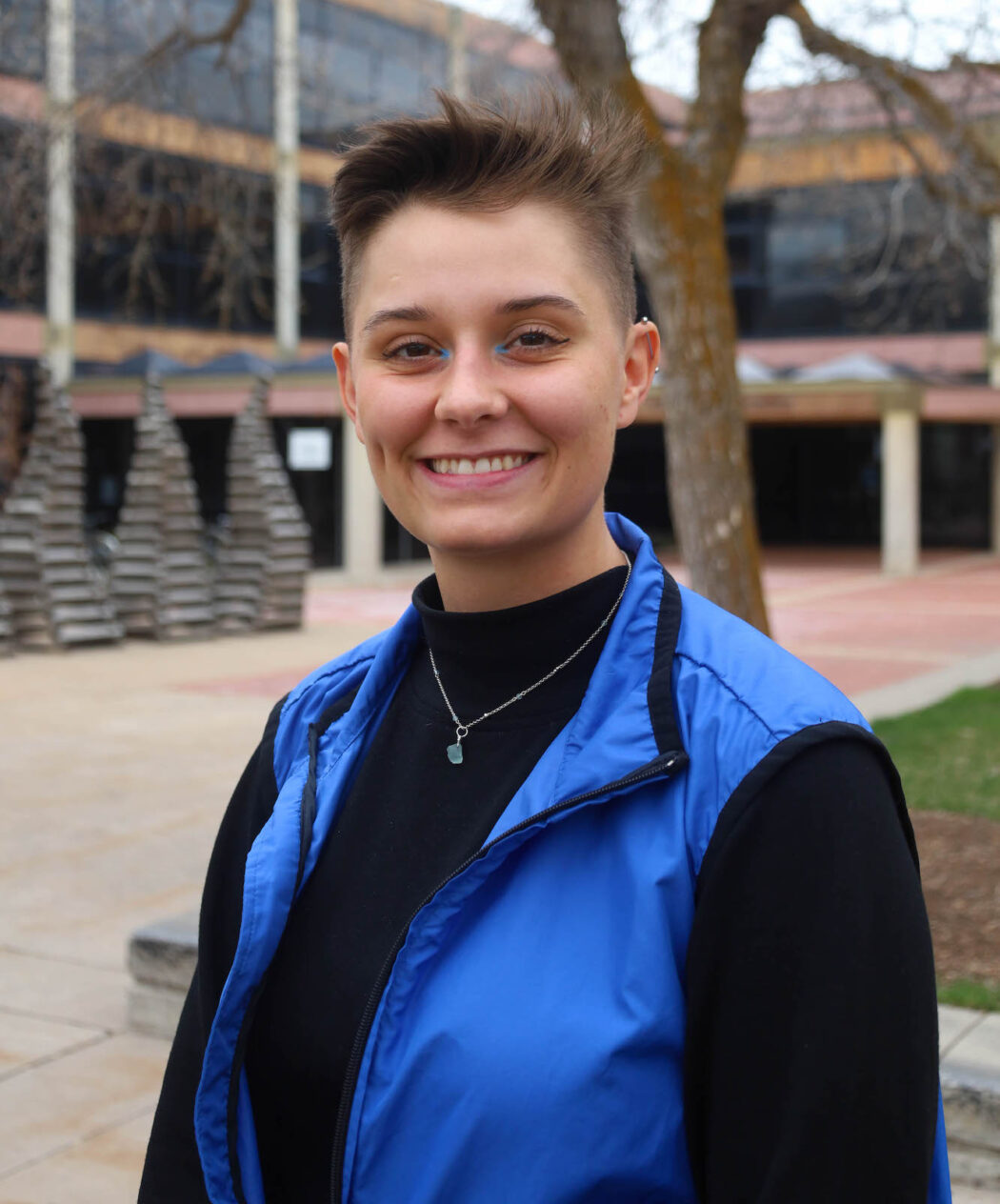River Johnson: the ultimate researcher
River Johnson, a Utah State University graduate from the Department of Environment and Society, has left not only the S.J. and Jessie E. Quinney College of Natural Resources, but USU a better, safer and more inclusive place.
From Northern Virginia, Johnson attended Hollins University for two years, but after visiting a friend in Idaho and traveling around Utah, they applied to USU.
“I watched the prettiest sunset of my life driving from Zion to Idaho and I knew I wanted to live here,” Johnson said.
Beginning in the accounting program in the Jon M. Huntsman School of Business, Johnson eventually found their passion for geography after a guest presentation during a class.
Claudia Radel, a professor and the department head over the geography programs, nominated Johnson. She said Johnson maximized their engagement, not only benefiting themself as a student but USU and the department as well.
“They really make the most of every chance to learn and explore the world,” Radel said. “That constant openness to new learning is something for all of us — at any stage in our lives — to find inspiration.”
Since being in natural resources, Johnson has taken on leadership roles such as being on the committee for Diversity, Equity, and Inclusion. They were also highly involved with the Center for Intersectional Gender Studies and Research, receiving a certificate for inclusive leadership from it and serving as the first undergraduate on the panel for Pride in the Field — part of its Intersections on Inclusion series.
“I have more of an intersectional perspective or approach to the natural resource college,” Johnson said. “In a sense that I feel like I have sought out a lot of opportunities, both within my college and outside and I don’t really keep those separate.”
Johnson also worked as a student researcher with graduate students in California. During this time, Johnson experienced levels of microaggressions which made them feel unsafe and uncomfortable.
In response to the lack of respect and inclusion Johnson experienced in the field, they began researching what resources were available for queer student researchers. Discovering there was a need for these resources, Johnson has created their own handbook for inclusive practices in field work.
“I am working on this to identify best practices to conduct inclusive research but also for advisers and graduate students leading projects,” Johnson said. “To set up a foundation of inclusion and to be better prepared for anything they might encounter in the field — how to make sure queer student researchers are safe.”
Christy Glass, the interim director of the intersectional gender studies center, has worked with Johnson to create the handbook.
“What I have enjoyed the most is the tremendous insight River has to have experienced something terrible and then to translate that terrible experience into something that’s going to help and support others down the road,” Glass said. “River wanted to make sure no other USU student had to experience what they experienced as a researcher.”
Thinking about leaving USU, they said they will miss their connections and community the most.
“College is such a beautiful place to explore and just try stuff without fear of failure,” Johnson said. “That is honestly one of my favorite things about USU. I may not have a lot of experience in certain backgrounds, but someone is always willing to help me learn and try to do anything I want.”
Johnson advised new students not to fight the inevitable change college brings. Friends, values, interests, ideas, passions and mindset will all change. They said to embrace it and extend hands of friendship everywhere you go and maintain relationships when networking.
Johnson has made meditation and setting time aside for themself a critical part of their routine. Their biggest piece of advice for success and well-being is to go outside.
“River will leave USU a better, more inclusive place,” Glass said. “If they can bring their whole self to whatever they do next, they will change the world. And that gives me hope.”
-Maya.Mackinnon@usu.edu
Featured photo by: Kate Smith

